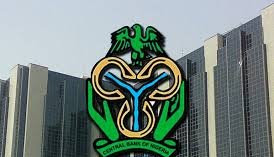1.0 Introduction
In line with the
objectives of enhancing efficiency and facilitating a liquid and transparent,
Foreign Exchange (FX) market, the Central Bank of Nigeria (CBN) hereby releases
the revised guidelines on the operations of the Nigerian Inter-Bank FX market
towards the liberalisation of the market.
2.0 Guidelines
The CBN shall operate a
single market structure through the autonomous/inter-bank market i.e. the
Inter-Bank Foreign Exchange Market with the CBN participating in the FX market
through interventions (i.e. CBN Interventions) directly in the inter-bank
market or through dynamic “Secondary Market Intervention Mechanisms”.
Furthermore, to promote
the global competitiveness of the market, the inter-bank FX market will be
supported by the introduction of additional risk management products offered by
the CBN and Authorised Dealers to further deepen the FX market, boost liquidity
and promote financial security in the market.
Additionally, to further
improve the dynamics of the market, the CBN shall introduce FX Primary Dealers
(FXPDs). These shall be registered Authorised Dealers designated to deal with
the CBN on large trade sizes on a two-way quote basis. amongst other
obligations as stated in the FXPD Guidelines – (Guidelines for Primary
Dealership in FX Products). The FXPDs shall operate with other Authorised
Dealers (non-FXPDs) in the Inter-bank market.
2.1 Inter-bank Foreign
Exchange
Market 2.1.1
Participants in the
inter-bank FX market shall include Authorised Dealers, Authorised Buyers, Oil
Companies, Oil Service Companies, Exporters, End-users and any other entity the
CBN may designate from time to time.
2.1.2Authorised
Dealers shall buy and sell FX among themselves on a two-way quote basis via the
FMDQ Thomson Reuters FX Trading Systems (TRFXT Conversational Dealing), or any
other system approved by the CBN.
2.1.3 Authorised
Dealers may offer one-way quotes (bid or offer) on all products and on request
to other Authorised participants via the FMDQ Thomson Reuters FX Trading System
(FMDQ TRFXT – Order Book System), or any other system approved by the CBN.
2.1.4 The
maximum spread between the bid and offer rates in the inter-bank market shall
be determined by FMDQ OTC Securities Exchange (FMDQ) via its market
organisation activities with the Financial Market Dealers Association (FMDA).
2.1.5 Proceeds
of Foreign Investment Inflows and International Money Transfers shall be
purchased by Authorised Dealers at the inter-bank rate.
2.2 HEDGING PRODUCTS
2.2.1To further deepen the
FX market, in addition to the already approved hedging products referenced in
the CBN “Guidelines for FX Derivatives and Modalities for CBN FX Forwards”,
Authorised Dealers are now permitted to offer Naira-settled
non-deliverable overthe-counter (OTC) FX Futures.
2.2.2 OTC
FX Futures’ transactions shall be nonstandardised with fixed tenors and bespoke
maturity dates.
2.2.3 OTC
FX Futures sold by Authorised Dealers to endusers must be backed by trade
transactions (visible and invisible) or evidenced investments.
2.2.4 FMDQ
will provide the appropriate benchmarks for the valuation and settlement of the
OTC FX Futures and other FX derivatives.
2.2.5 FX
OTC Futures and Forwards will count as part of the FX positions of Authorised
Dealers.
2.2.6 To
promote market liquidity, Authorised Dealers may apply FX Spot transactions to
hedge Outright Forwards, OTC FX Futures and FX Options etc.
2.2.7 Settlement
amounts on OTC FX Futures may be externalised for Foreign Portfolio Investors
(FPIs) with Certificates of Capital Importation. Such settlement amounts shall
be evidenced by an FMDQ OTC FX Futures Settlement Advice.
2.2.8 Furthermore,
FMDQ will be developing detailed registration and operational regulation on FX
Options and will drive, with the market, the development of other risk
management products and attendant guidelines.
2.3 Foreign Currency
Trading Position
2.3.1 Further
to the CBN Circular Ref: TED/FEM/FPC/GEN/01/001 dated 12th January 2015,
Authorised Dealers, (FXPDs and non-FXPDs) are hereby notified of a review in
the daily Foreign Currency Trading Positions of banks. Consequently, Authorised
Dealers shall have maximum limits of +0.5%/-10% of their Shareholders’ Funds
unimpaired by losses as Foreign Currency Trading Position Limits to support
their obligations as liquidity providers at the close of each business day.
2.3.2 Where
an Authorised Dealer requires a higher position limit to accommodate a customer
trade, the Authorised Dealer shall contact the Director, Financial Markets
Department. Where the request is assessed as valid, the Director shall
communicate immediate approval by text or email to the Authorised Dealer.
Thereafter, the Authorised Dealer must, with 24 hours, write to the Director,
Financial Markets Department who will thereafter communicate an approval in
writing. The Director, FMD shall exercise discretion on the duration of the
temporary position limit depending on the estimated defeasance period of the
transaction size.
2.3.3 Returns
on the purchases and sales of FX shall be rendered daily to the CBN by
Authorised Dealers.
2.3.4 Inter-bank
funds shall NOT be sold to Bureaux-deChange.
2.3.5 The
forty-one (41) items classified as “Not Valid for Foreign Exchange” as detailed
in the CBN Circular Ref: TED/FEM/FPC/GEN/01/010, remain inadmissible in the
Nigerian FX market. 2.3.6Applicable exchange rate for the purpose of import
duty payments shall be the daily inter-bank FX closing rate as published on the
CBN website.
2.4 CBN INTERVENTIONS
2.4.1 Participation
in the FX market by the CBN shall be via: i. The Inter-Bank FX Market ii.
Secondary Market Intervention Sales (SMIS)
2.4.2 Intervention
Through the Inter-Bank FX Market
1.
The CBN reserves the right to intervene in
the inter-bank market to either buy or sell FX Spot upon the receipt of valid
two-way quotes on the standard amount as defined from time to time in the FXPD
Guidelines.
2.
CBN may also intervene in the inter-bank
market by placing orders for non-standard amounts in the FMDQ TRFXT – Order
Book System., or any other system as approved by the CBN.
- There shall be no predetermined spread
on FX Spot transactions executed through CBN intervention with the FXPDs.
1.
The CBN reserves the right to intervene in
the inter-bank market to either buy or sell FX Forwards upon the receipt of
valid two-way quotes on the standard amount as defined from time to time in the
FXPD Guidelines.
2.
To enhance liquidity, CBN shall also offer
nondeliverable OTC FX Futures (bid or offer) daily on the FMDQ OTC FX Futures
Trading & Reporting System.
3.
The OTC FX Futures shall be in non-standardised
amounts and different fixed tenors which may be sold on any date thereby giving
bespoke maturity dates.
- FXPDs may purchase OTC FX Futures for
their own accounts or sell to other Authorised Dealers and end-users.
viii. There shall be no maximum spread on the sale of the Forwards and OTC
FX Futures purchased from CBN by FXPDs to Authorised Dealers and endusers
2.4.3 Secondary Market
Intervention Sales (SMIS)
1.
The CBN may, at its discretion, intervene
in the FX market through the sale of FX to Authorised Dealers (wholesale) or to
end-users through Authorised Dealers (retail) via a multiple-price book
building process using the FMDQ-Thomson Reuters FX Auction Systems, or any
other system approved by the CBN. All SMIS bids shall be submitted to the CBN
through the FXPDs.
SMIS – Wholesale:
- All FX Spot purchased by Authorised
Dealers are transferable in the inter-bank FX market.
- CBN may offer long-tenored FX Forwards
of 6 – 12 months or any tenor to Authorised Dealers. o Sale of FX Forwards
by Authorised Dealers to end-users must be tradebacked. There shall be no
predetermined spread.
- FX Forwards purchased by Authorised
Dealers are transferable in the inter-bank FX market.
SMIS – Retail:
- All FX Spot purchased by Authorised
Dealers for end-users shall be for eligible transactions only upon the
provision of appropriate documentation.
- FX Spot sold to any particular
end-user shall not exceed 1% of the overall available funds on offer at
each SMIS session.
- CBN may offer FX Forwards to endusers
through Authorised Dealers and may limit the amount sold to an individual
end-user o All FX Forwards sales to end-users must be trade-backed.
- There shall be no maximum spread on
the sale of FX Forwards by Authorised Dealers to end-users.
3.0 Execution and
Reporting
2.5 To ensure effective
monitoring of the FX market, all Authorised Dealers and end-users are required
to trade only on FMDQ-advised FX Trading System(s). All transactions not
executed on the Trading Systems shall be voice reported on the Trading Systems.
2.6 All FX transactions by
Authorised Dealers are to be reported to FMDQ via the FMDQ-advised FX Reporting
System. CBN will be granted access to this system.
4.0 Sanctions
Authorised Dealers are
enjoined to comply with the provisions of these Guidelines, failing which
appropriate sanctions shall be imposed, including suspension of the FXPD,
Authorised Representatives of the Authorised Dealer, suspension of Authorised
Dealer from the FX market and/or withdrawal of the Authorised Dealership
Licence.
For the avoidance of
doubt, all Authorised Dealers are to refer policy issues in respect of which
they are in doubt to the Director, Financial Markets Department, Central Bank
of Nigeria for clarification.
5.0. Primacy of the
Guidelines
These Guidelines
supersede:
1.
Circular Ref: TED/FEM/FPC/GEN/01/020 dates
October 28, 2014 titled “Guidelines on the Operation of CBN Interventions in
the Inter-Bank Market through the Two Way Quote System”.
2.
All other prior Circulars and Guidelines on
the subject matter. Please be guided
By: Magnus Amudi
Magnus Amudi is an Associate
Attorney at Aelex. His major areas of practice are Corporate/Commercial Law,
Energy and Natural Resources, Company Secretarial/Compliance, Labour and
Employment Law.
Ed’s Note: This article was originally published here.
















